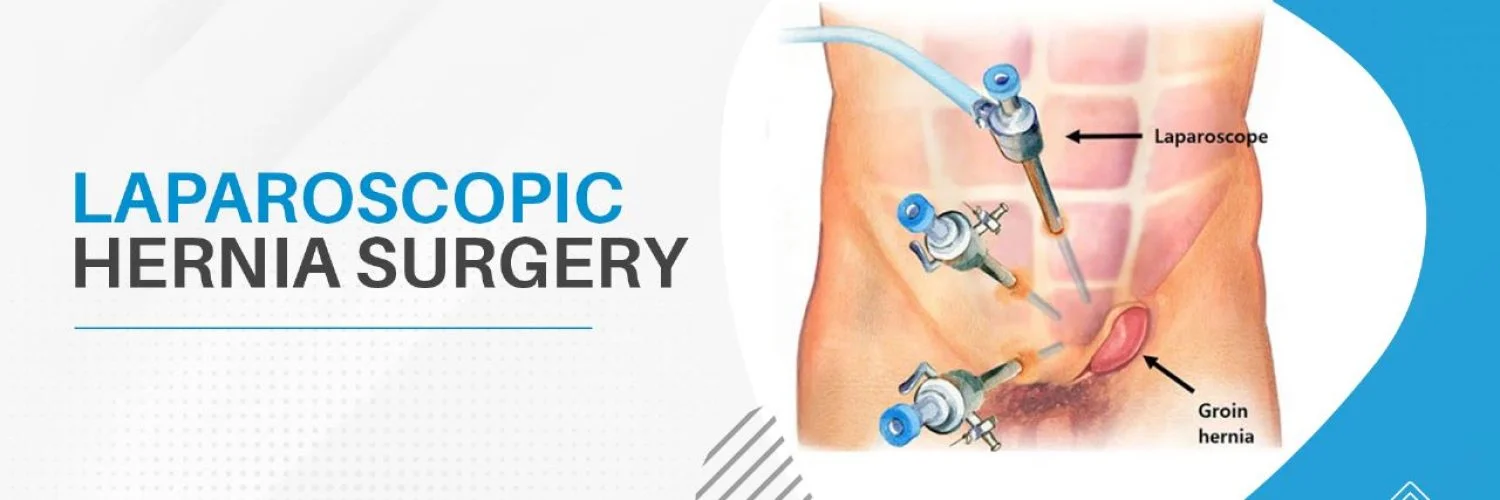19 Dec 2025
Age Specific Related to Psoriasis in Amritsar


Dr. Majid Rasool Wani
26 Aug 2025
Call +91 80788 80788 to request an appointment.
Hernias can happen to anyone, and they often require surgical intervention to avoid serious complications. Among the various treatment options available, laparoscopic hernia surgery stands out due to its minimally invasive nature. In this comprehensive guide, we will delve into the details of laparoscopic hernia surgery, its procedure, benefits, and the factors to consider when seeking treatment at Livasa Hospital, a leading healthcare provider in Mohali known for its advanced general surgery services.
A hernia occurs when an internal organ or tissue bulges through the abdominal wall or into a cavity. This typically happens due to a combination of strain, heavy lifting, or other factors. Hernias can appear in various locations, most commonly in the groin area (inguinal), abdomen (ventral), and diaphragm (hiatal). The following are some causes and symptoms associated with hernias:
If left untreated, hernias can lead to severe complications such as strangulation, where the blood supply to the affected organ is cut off. This necessitates immediate medical attention.
Laparoscopic hernia surgery is a minimally invasive procedure that utilizes small incisions and advanced imaging technology to repair hernias. Unlike traditional open surgery, which involves larger cuts and a longer recovery time, laparoscopic surgery is associated with reduced pain and faster recovery. The advantages of this approach make it a preferred option for many patients.
Here's a breakdown of the laparoscopic hernia surgery procedure:
The merits of laparoscopy are numerous, making it an attractive option for patients wishing to treat a hernia. Some of the most significant benefits include:
As one of the best laser hernia surgery hospitals in Mohali, Livasa Hospital ensures that patients receive the highest quality care throughout their treatment journey.
| Procedure Type | Benefits | Recovery Time | Complications |
|---|---|---|---|
| Laparoscopic Hernia Surgery | Minimally invasive, less pain, minimal scarring | 1-2 weeks | Lower risk of infection |
| Open Hernia Surgery | Direct access to the hernia site | 2-4 weeks | Higher risk of complications |
As outlined in the table above, laparoscopic surgery stands out as a better choice concerning recovery time and complication rates compared to traditional open surgery.
After laparoscopic hernia surgery, patients can expect various sensations and recovery milestones. Early recovery is crucial for long-term success:
Livasa Hospital, a top hernia repair hospital in Mohali, takes pride in offering comprehensive postoperative care to enhance recovery and ensure patient well-being.
The cost of hernia surgery can vary significantly based on factors such as the hospital's facility, the surgeon’s expertise, and any insurance coverage. At Livasa Hospital, we strive to provide affordable hernia treatment in Mohali, aiming to make advanced medical care accessible to everyone. Below is a general overview of the cost structures you may encounter:
For more specific pricing information and to explore your options, booking an appointment at Livasa Hospital is highly recommended.
Laparoscopic hernia surgery represents an advanced, efficient, and minimally invasive way to address hernias, providing numerous benefits over traditional surgical methods. At Livasa Hospital in Mohali, our team of general surgery experts is dedicated to providing the highest level of care, ensuring that patients receive comprehensive treatment tailored to their needs. Whether you're seeking a hernia surgery specialist in Mohali or have questions about your condition, reach out to us today to learn how we can assist you on your journey to health and recovery.
This article was written by a healthcare professional at Livasa Hospital, sharing insights based on professional experience in the field.
+91 80788 80788
Livasa Healthcare Group Corporate Office,Phase-8, Industrial Area, Sector 73, Sahibzada Ajit Singh Nagar, Punjab 160071
livasacare@livasahospitals.in
| Mohali | +91-99888 23456 |
| Amritsar | +91-99887 49494 |
| Hoshiarpur | +91-99883 35353 |
| Nawanshahr | +91-75081 82337 |
| Khanna | +91-98888 05394 |